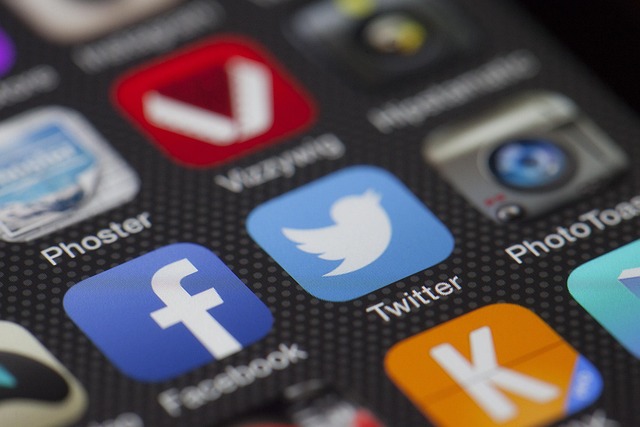In today’s fast-paced digital world, Artificial Intelligence (AI) is no longer just a buzzword. It’s a game-changer. From content creation to campaign optimization, AI tools are transforming the way marketers work, allowing them to save time, improve accuracy, and drive better results. Whether you’re a solopreneur, agency, or enterprise-level marketer, integrating AI into your digital marketing workflow is now more essential than ever.
In this blog, we’ll explore how to effectively use AI tools in your digital marketing process, along with examples, tool recommendations, and practical tips.
Why Use AI in Digital Marketing?
Before diving into how to use AI, let’s understand why it’s worth incorporating:
- Saves Time: Automates repetitive tasks like scheduling posts, analyzing data, and generating content.
- Increases Accuracy: Reduces human error in data analysis and improves targeting precision.
- Improves Personalization: Helps deliver highly targeted content based on user behavior and preferences.
- Boosts ROI: By optimizing campaigns in real-time, AI tools can improve ad performance and reduce wastage.
Where Can AI Fit in Your Workflow?
AI can be integrated at every stage of your marketing workflow:
- Planning & Research
- Content Creation
- Campaign Management
- SEO Optimization
- Email Marketing
- Analytics & Reporting
Let’s break down each of these with examples.
1. Planning & Research

AI tools can analyze large sets of data quickly to provide valuable marketing insights.
Tools:
- ChatGPT / Gemini: Generate ideas for content, campaigns, keywords, and more.
- BuzzSumo: Discover trending content and analyze competitors.
- Exploding Topics: Spot emerging trends in your niche.
How to Use:
- Ask ChatGPT for “5 content ideas for Instagram marketing in the beauty industry.”
- Use BuzzSumo to find out which headlines perform best for your niche.
- Analyze customer queries using AI chatbots or FAQs to create relevant content.
2. Content Creation

This is one of the most impactful areas where AI shines. It can generate, rewrite, or improve content within seconds.
Tools:
- ChatGPT / Jasper AI / Copy.ai: Write blogs, product descriptions, email copy, social captions.
- Canva AI / Adobe Firefly: Create graphics, videos, and presentations using text prompts.
- Grammarly / Quillbot: Improve grammar, tone, and readability of written content.
How to Use:
- Generate blog outlines or full drafts using ChatGPT or Jasper.
- Create branded social media templates with Canva Magic Design.
- Use Grammarly to polish your copy before publishing.
3. Campaign Management

Running digital ad campaigns manually can be complex and time-consuming. AI tools help automate, optimize, and analyze campaign performance in real-time.
Tools:
- Meta Ads Manager AI Suggestions
- Google Ads Smart Bidding
- Adzooma / Revealbot: AI-based ad automation platforms
How to Use:
- Let Google Ads use AI to automatically bid for keywords based on conversion likelihood.
- Use Meta’s AI-powered targeting suggestions to reach the right audience.
- Automate A/B testing for creatives and copy using Revealbot.
4. SEO Optimization

SEO is a critical part of any digital marketing strategy, and AI makes it more efficient.
Tools:
- Surfer SEO / Frase / NeuronWriter: Optimize blog posts with keyword suggestions and content scoring.
- MarketMuse: Provides a content strategy based on ranking potential.
- SEMrush / Ahrefs with AI integrations: Perform in-depth competitor and keyword research.
How to Use:
- Use Surfer SEO to write AI-assisted blog posts that are optimized for Google.
- Analyze your competitors’ keyword strategies using Ahrefs and ask ChatGPT how to outrank them.
- Let MarketMuse suggest internal linking opportunities for better SEO health.
5. Email Marketing

AI has made email marketing smarter by enhancing personalization, segmentation, and automated flows.
Tools:
- Mailchimp / ActiveCampaign / Moosend: Use AI to segment lists, send at optimal times, and suggest content.
- ChatGPT / Jasper: Write email copy with better engagement.
- Seventh Sense: AI tool to send emails at the perfect time for each subscriber.
How to Use:
- Generate a 5-email welcome series using AI tools.
- Use Mailchimp’s predictive analytics to send targeted product suggestions.
- Write subject lines and preview text that boost open rates using AI-powered tools.
6. Analytics & Reporting

Tracking and interpreting marketing data can be overwhelming. AI simplifies this process by providing actionable insights.
Tools:
- Google Analytics 4 (GA4): Uses AI to highlight key changes and predict future trends.
- PaveAI: Converts Google Analytics data into easy-to-understand reports.
- Tableau / Power BI with AI: Visualize complex data using natural language queries.
How to Use:
- Use GA4’s predictive metrics to identify users likely to churn or convert.
- Ask ChatGPT to summarize key insights from your analytics report.
- Use PaveAI to translate raw data into a client-ready PDF report in minutes.
Bonus: AI Chatbots & Customer Support
Chatbots powered by AI provide 24/7 support, reduce response times, and improve customer satisfaction.
Tools:
- Tidio / Drift / Intercom: AI chatbots that handle FAQs, booking, and customer queries.
- ManyChat: For automated interactions on Messenger, WhatsApp, or Instagram.
How to Use:
- Set up a chatbot to qualify leads on your website automatically.
- Use AI to handle 80% of customer service queries, passing complex ones to a human.
Tips for Integrating AI into Your Workflow
- Start Small: Begin with one or two tools—perhaps an AI writer or chatbot—and expand as you gain confidence.
- Don’t Rely Entirely on AI: Use it as a support tool, not a full replacement for human creativity and decision-making.
- Train Your Team: Ensure your marketing team knows how to use AI tools effectively.
- Stay Updated: AI evolves fast—follow updates and new tools regularly.
- Measure Results: Use analytics to track how AI tools are impacting your workflow efficiency and campaign performance.
Final Thoughts
The integration of AI into digital marketing isn’t just a trend—it’s the new standard. Whether you’re generating content, optimizing campaigns, or analyzing customer behavior, AI tools can help you work smarter, not harder. The key is to use them strategically and stay updated with evolving features and best practices.
So, take a look at your current workflow. Where can AI save you time or help you scale? Start there—and unlock the full potential of intelligent marketing.

